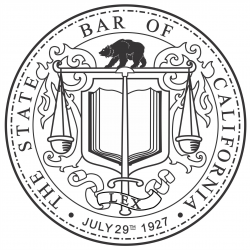Job Description
Office of Professional Support & Client Protection, Client Security Fund Annual Salary Range: $136,705 - $204,899
FLSA Exempt / Union Represented
About the OfficeThe Office of Professional Support & Client Protection includes 1) The Client Security Fund (CSF), which reimburses those who have lost money or property due to theft or dishonest conduct by a California attorney; 2) Lawyer Assistance Program (LAP), which provides support to law students, State Bar applicants, and current and former attorneys who require monitoring for substance use and behavioral health issues 3) The Office of Case Management and Supervision, which monitors disciplined attorneys who must comply with conditions pursuant to a probation or reproval matter and; 4) The statewide Mandatory Fee Arbitration Program, which provides avenues for alternative dispute resolution of attorney-client fee disputes.
The Ideal CandidateWe seek an attorney with a positive attitude and growth mindset to join our small team. The CSF Attorney III provides technical leadership and project management of a significant part of the overall legal functions of the Fund. We are looking for an applicant with strategic thinking and vision who is adaptable and resilient and has the capacity to develop into a thought leader in the Bar's consumer protection functions. The ideal applicant will also have experience with investigating and analyzing complex legal matters and strong written and oral presentation skills. This is not a litigation or advocacy position but involves applying facts to the law and concluding whether to grant or deny an application. It requires a commitment to public protection and a desire to assist those who may have been a victim of attorney theft. The CSF attorney must provide excellent customer service to applicants, respondents, State Bar officials and employees, and the general public regarding all Client Security Fund functions.
Duties and Responsibilities - Provide comprehensive substantive and procedural legal counsel and advice to the Client Security Fund and Client Security Fund Commission.
- Exercise sound judgment and prioritize and manage a substantial volume of complex cases efficiently, effectively, and with accuracy.
- Obtain, review, analyze, and synthesize evidence relevant to CSF applications and decisions, including drafting informal discovery requests, correspondence, and subpoenas.
- Apply the CSF rules to the evidence, afford due process to the parties, and prepare concise, cogent, and accurate written decisions containing factual findings and legal conclusions whether to grant or deny reimbursement to applicants. Written decisions must be refined and ready for service with minimal supervisorial editing.
- Prepare and present orally multiple decisions with detailed information about all aspects of each case to the CSF Commission at any given Commission meeting and provide the Commission with advice concerning the legal effect of rules and regulations, proposed legislative measures, statutory law, court decisions, and administrative actions.
- Cooperatively and courteously interact with stakeholders and other entities and occasionally anxious or upset individuals.
- Work closely with the Office of General Counsel in connection with CSF litigation and collections matters, provide information to law enforcement and other outside agencies (including Legislative officials and the California State Auditor), prepare and present State Bar Board of Trustee agenda items, and assist in drafting of reports, proposed rule changes, and proposed legislative measures.
- Work independently and appropriately identify and raise issues that may affect CSF and CSF Commission operations and cases, including policy issues requiring decision by management.
- Train, guide, coordinate, and direct the work of subordinate CSF staff.
- In collaboration with leadership, critically evaluate processes, identify areas for improvement, and, where appropriate, lead improvement efforts.
- Identify, access, and consider data to assist with case processing, inform annual budget needs, recognize important trends, and overall understand the functioning and health of the program.
- Demonstrate a commitment to the mission of the Fund, be willing to personally handle any issue or task that may arise no matter how minor or substantial, and provide excellent customer service to applicants, respondents, State Bar officials and employees, and the general public regarding all aspects of Client Security Fund functions.
DefinitionUnder direction and with a progressively increasing degree of complexity and independence, the Attorney III performs complex legal work that includes the identification of legal issues; recommendations of appropriate action; resolution of legal problems; interpretation and application of laws, rules, regulations, and other legal authorities; legal research and analysis; preparation of legal documents, opinions, and other memoranda, and litigation activities. The Attorney III handles assigned litigation, frequently takes lead responsibility in case/project management presentations, and assists in the formulation, determination, and effectuation of management policies of the State Bar.
Distinguishing CharacteristicsThe Attorney I is the entry-level classification in the Attorney series. The Attorney I differs from the Attorney II classification in that the latter handles more complex assignments, works under less supervision, and may serve as the lead over a small team of administrative and/or professional staff, or as a lead counsel in trials.
The Attorney II differs from the Attorney III in that the latter handles a more complex and voluminous caseload, works under less supervision, and may also serve as a lead over a small team of attorneys and/or administrative and professional staff.
The Attorney III differs from the Attorney IV in that the latter has a more complex caseload and serves in a lead capacity over other attorneys and/or administrative and professional staff.
Examples of Essential DutiesDuties may include, but are not limited to, the following:
- Independently researches, analyzes, interprets, and applies legal principles within the assigned work area.
- Conducts legal research in various areas of federal, state, and State Bar Court law, including case decisions, evidentiary law, statutory law, procedural and court rules, and legislation.
- Prepares legal documents, including pleadings, subpoenas, memoranda, letters, proposals, tentative or draft decisions, and/or other documents.
- Maintains adequate case, file, and related records to ensure effective completion of projects assigned and assists in the evaluation of the work product.
- Stays informed concerning the applicable law, rules, procedures, policies, and practices relating to the functions assigned.
- Provides substantive and procedural recommendations to other attorneys to assist them with their cases or prepare them for trial.
- Provides legal advice to management, executive staff, judges, sub-entities, commissions, or oversight bodies.
- Reviews complaints to identify ethical violations and legal issues, and makes decisions regarding the disposition of applications, claims, files and complaints.
- Reviews applications for program eligibility.
- Prepares cases for hearing or trial, including directing the gathering of evidence, preparing and filing required pleadings and motions, and preparing witnesses for testimony.
- Performs trials, including delivering opening and closing statements, conducting direct and cross examinations, and preparing post-trial briefs.
- Writes legal analysis setting forth facts and legal conclusions.
- Serves as lead attorney on trials or appellate cases.
- Conducts informal and formal discovery to ensure that legal analyses and recommendations have sufficient evidentiary and legal bases.
- Performs independent review of the record of moral character and disciplinary proceedings on appeal from the Hearing Department of the State Bar Court.
- Communicates with members of the public regarding complaints, applications, rules and procedures, and State Bar processes.
- Presents matters before State Bar sub-entities, commissions, or oversight bodies, including preparing, reviewing, or editing draft decisions and agenda items.
- Participates in training and professional development activities and may lead training activities.
- May serve as a guide and mentor to other attorneys and staff, as needed, in researching, interpreting, and applying complex legal principles and preparing them for trial.
- Performs similar or related duties, which may not be specifically included within this job description, but which are consistent with the general level of the job and the responsibilities described.
Employment StandardsKnowledge of:
- Substantive knowledge of law, rules, decisions, practices, and procedures of the State Bar, California Supreme Court, State Bar Court, and California Legislature.
- Substantive knowledge of effective investigation techniques, case management, and presentation of matters to administrative bodies.
- Scope and character of federal and California statutory law and provisions of the federal and California constitutions.
- Rules of evidence and conduct of proceedings in trial and appellate courts in California.
- Rules and procedures related to public hearings.
- Principles of effective work coordination and strong case/project management.
- Advanced analytical skills.
- Principles of effective time management.
- Principles of oral advocacy.
- Strong writing and oral communication skills.
- Advanced legal research and preparation of reports, briefs opinions, and pleadings.
- Principles of conflict resolution.
- Knowledge of the rules and regulations governing the practice of law in the State of California.
Ability to:
- Receive and relay detailed information through verbal and written communications.
- Conduct legal research using computer technology and traditional library resources.
- Work under the pressure of short deadlines.
- Effectively address conflict.
- Review and analyze complex written documents.
- Obtain and present material in oral and/or written form.
Minimum QualificationsEducation:
- Successful completion of a Juris Doctorate Degree from an accredited law school.
Experience:
- Minimum of four (4) years of progressively more responsible experience in litigation and/or legal advice work demonstrating the knowledge and skills necessary for this position.
- Demonstrated verifiable reputation for integrity and no history of disciplinary offenses as an attorney or in any other capacity.
Applicants who meet the Minimum Qualifications will be required to successfully complete the State Bar's selection process for this classification.
License, Certificate, and Registration Requirements:
- Must be an active member, in good standing, in the State Bar of California.
We are a diverse, equitable, and inclusive workplace where all of our employees and prospective employees experience fairness, dignity, and respect.



